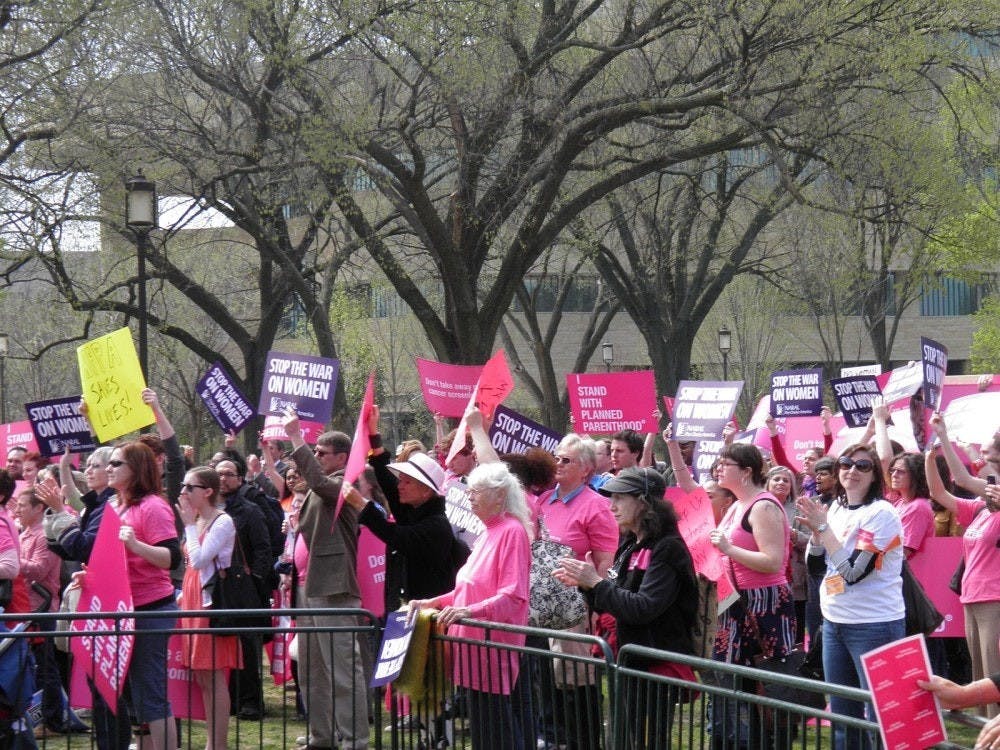May 15 marked a distinct change in America. On this date the Governor of Alabama, Kay Ivey, signed into law HB 314 — a complete ban of abortion in the state as well as a prison sentence of up to 99 years to any doctor who performs an abortion in Alabama. HB 314 is now the most restrictive abortion law in the U.S., banning abortion almost entirely, even in cases of rape or incest.
Since the landmark decision in Roe v. Wade, pro-life advocates have been pushing for restrictions and even bans on abortion. These abortion restrictions were legitimized in Planned Parenthood v. Casey — the Supreme Court upheld the right to abortion granted in Roe v. Wade, but allowed several restrictions on abortion access and established the “undue burden” standard for state level abortion regulation. The “undue burden” standard allows abortion regulation by state governments so long as the regulation does not pose a “substantial obstacle in the path of a woman seeking an abortion before the fetus attains viability.” After examining Alabama’s and other recent abortion bans enacted across the U.S., it is clear that these regulations place an undue burden on those seeking an abortion.
Alabama is not alone in the fight to ban abortion in the U.S. Seven other states have passed legislation limiting abortion access. Mississippi, Ohio, Missouri and Georgia all passed fetal heartbeat legislation — placing a ban on abortion once a fetal heartbeat is detected. Mississippi Governor Phil Bryant cited the heartbeat as “the universal hallmark of life since man’s very beginning” in an address prior to signing the fetal heartbeat bill into law in Mississippi. In recent years, other states — Iowa and Kentucky — have enacted similar fetal heartbeat bills only to be challenged and subsequently struck down in federal district courts. And in Arkansas, abortion access is restricted to 18 weeks of gestation, similar to legislation in Utah that was blocked by a federal judge. The state legislature in Louisiana is working towards similar abortion bans in their state. These restrictions on abortion swiftly passed state legislatures, garnering significant media attention.
In addition to burdening individuals seeking abortion, these abortion bans also pose a viable threat to democracy. A 2018 Gallup poll found that only 18 percent of Americans support a complete ban on abortion, compared to the 79 percent that support legal abortion in the first trimester of pregnancy. The Gallup poll also found that public support for abortion has remained fairly constant since 1976 — with 79 percent support in 2018 and 76 percent support in 1976. With the majority of Americans supporting abortion access, the recent restrictions on abortion diverge from the will of majority, marking a distinct shift in the validity of our democracy.
Moreover, according to an analysis conducted by Data for Progress, there is not a single state where the majority of voters support a complete ban on abortion, such as the one enacted under HB314 in Alabama. While the American government is designed to resist the ebbs and flows of majoritarianism, public opinion is nevertheless important to a stable democratic republic. With less than a quarter of the American public supporting these radical abortion restrictions, Alabama’s abortion ban represents a tyranny of the minority.
Hoping to capitalize on the apparent lack of support for these restrictive abortion laws, many Democratic presidential candidates are releasing their stances and plans to protect abortion access. Senator Elizabeth Warren (D- Mass.) has laid out a comprehensive four-part plan, including the passage of the Women’s Health Protection Plan which bars states from implementing abortion bans such as the one in Alabama.
Ultimately, with many conservatives boasting these recent abortion restrictions as a victory in the fight for life, it is clear that the right is out of touch with the will of the American people. Moral opinions aside, the majority of Americans do not support these restrictions on abortion access. In fact, several conservative leaders have voiced opposition to the abortion bans, including Pat Robertson. The abortion ban movement represents a minority opinion across the U.S. This rise of a far-right minority is not a new phenomena, but one that is further highlighted in the wake of our contemporary abortion debate. These abortion bans highlight greater issues within our democratic system, where legislators are ignoring the opinions of their constituents and the precedent laid out by the Supreme Court.
Mary Alice Kukoski is an Opinion Columnist for The Cavalier Daily. She can be reached at opinion@cavalierdaily.com







